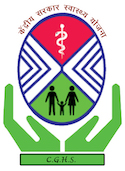Feeling tired is a common thing for all of us. Tiredness is a way to tell that body needs some rest. But it becomes challenging when you continuously feel tired in the due course of time and your body keeps on demanding “rest”. The same is the condition of Chronic fatigue syndrome. I have come across many patients who kept on taking some “anti-depressant” pills every day and loads of multivitamins. But nothing works well with patients of CFS. When we talk about Chronic Fatigue Syndrome Treatment in Ayurveda, the main thing is a better understanding of the disease. Because it is never enough to claim that “Ayurveda-Works”. The main thing is how do we approach the treatment of a complicated condition like chronic fatigue syndrome.
Here, we will discuss the disease in a very comprehensive manner and besides that, we will take a call on how does Ayurveda treatment of chronic fatigue syndrome works. Because my idea of treatment is not “replace-allopathy-medicines-with-Ayurvedic-Medicines“. Treatment is about solving the issue and bringing up freshness in body-mind and senses. Chronic Fatigue Syndrome Treatment in Ayurveda stands on principles, therefore it helps you to achieve the goal, without leaving any dullness and disturbed mood.

About Chronic Fatigue Syndrome
Chronic fatigue syndrome (CFS) is a disease of unknown origin characterized by incapacitating fatigue that does not improve with rest. There are many symptoms that can accompany CFS. Such as headaches, memory and/or concentration impairment, muscle pain, joint pain, sore throat, enlarged lymph nodes in the neck or armpits, and other flu-like symptoms. In severe cases, it may also include abnormalities detected through laboratory blood work including low natural killer cell activity, low white blood cell count, low red blood cells counts, low hemoglobin concentrations, and low platelets. 5-10% of CFS patients have a “postviral” onset to their illness after an infection from one of several infectious agents.
Many symptoms of CFS are similar to those found in other diseases, which makes diagnosis difficult. Some medical professionals question the validity of this illness. Because there is no known primary cause or specific diagnostic test that can unequivocally confirm its presence.
It has also been called “yuppie flu”. Because it became increasingly common among certain groups. Mainly young people who were very active and had high expectations for their lives (high-achieving yuppies). Most cases of CFS occur randomly with no identifiable risk factors. However, important risk factors associated with CFS include family medical history (e.g., cancer), recent viral infection (e.g., mononucleosis), prior immune system problems (e.g., autoimmune disease), and psychological stress.
The problem is more comprehensive, therefore chronic fatigue Syndrome treatment in Ayurveda is more applicable. Because Ayurveda looks at the human body, not just parts.
What causes Chronic fatigue syndrome?
The exact cause of CFS is unknown, but several factors may produce or trigger an episode that can include
As with other illnesses that produce flu-like symptoms, CFS is also triggered by a virus and/or stress hormone (i.e., cortisol).
Some researchers speculate that certain individuals possess genes and/or immune system characteristics that make them susceptible to this triggering process. However, these specific genes and characteristics are yet to identify. Evidence suggests that infections from one or more viruses may play a role in initiating the onset of CFS. Furthermore, studies show elevated levels of cytokines (immune chemicals) such as interferon and increased activity of natural killer cells, which suggest that the immune system is hyperactive during an episode of CFS. Psychological stress also works as a potential factor in triggering symptoms of CFS.
To aim for the Chronic Fatigue Syndrome Treatment in Ayurveda we need to understand how does Ayurveda thinks about the disease. The same we will discuss later on in the same page.
What are the symptoms of chronic fatigue syndrome?
The symptoms associated with chronic fatigue syndrome include persistent or relapsing symptoms of significant degree (mild, moderate, or severe) that interfere with usual activities and work for at least six months. The severity of symptoms ranges on a continuum from mild (almost unnoticeable) to severe (completely disabling).
- Symptoms must be present every day (not just some days).
- Persistence or recurrence of symptoms for more than 6 months.
- No changes and improvement in symptoms
- Absence of psychiatric depression or anxiety disorder.
The above four points
Four Categories of CFS Symptoms
1) problems with cognitive functioning including mental fatigue, impaired concentration, and short-term memory loss.
2) sleep disturbances which include disturbed sleep patterns and needing more sleep than normal.
3) problems with muscle pain and achiness with a range in severity from slight discomfort to severe pain that lasts for several days that may be accompanied by muscle weakness or spasms.
4) flu-like feelings such as feverishness (but without a fever), chills/sweats, sore throat, and swollen lymph nodes (located in the neck or underarm)
Limitations with Treatment of Chronic Fatigue Syndrome
No cure exists for CFF. And there are no Food and Drug Administration (FDA)-approved treatments that are safe and effective. Treatment varies depending on the severity of symptoms, how long a person has had the illness, other medical problems or conditions, etc.
Management of CFS includes –
- self-help strategies,
- proper nutrition,
- reducing stress levels,
- sleep management,
- the pacing of activities (doing too much/not enough),
- gentle exercise,
supplements/medications to help with specific symptoms such as pain or difficulty sleeping, etc.
Some patients may benefit from cognitive behavior therapy including graded activity programs designed by their doctor to gradually increase activity levels over time.
Contrary to this, Ayurvedic treatment for Chronic Fatigue Syndrome is safe as well as effective too. The good thing about ayurvedic treatment for CFS is- it works on the root cause of the problem.
Ayurveda doesn’t target the symptoms. This is the reason the impact of Ayurvedic treatment is more profound and permanent. Chronic Fatigue Syndrome Treatment in Ayurveda can fulfill all these challenges and that too in a very systemic way.
What does Ayurveda say about Chronic Fatigue Syndrome?
Ayurveda has a substantial amount of information regarding CFS. This helps in Chronic Fatigue Syndrome Treatment in Ayurveda.
According to Ayurvedic theory, all three doshas should remain in balance in order to maintain good health. A slight imbalance can cause disease. The ease is balance and as soon as it turns into imbalance it changes to disease. So every disease has one thing in common- an imbalance of doshas.
Because the human body and doshas are – dynamic. So there are millions of chances every day, which can cause imbalance. The art of maintaining balance is life.
This is stress which makes us more susceptible to this imbalance. Due to stress or experience of chronic stress, the body becomes depleted of vital nutrients.
Besides this, there is much wear and tear on individual cells, tissues, organs, etc., leaving them open to attack by infectious organisms. These are always present in the environment. Because we share the space. Don’t own one. Therefore these chances of change are high.
The main points that Ayurveda considers in CFS are:
1) The depletion of Jatharagni (digestive fire),
2) The presence of excessive Vata Dosha in the system,
3) The lack of proper digestion,
4) Weakness of body tissue and muscle because of low nutrients because of excess Vata dosha.
5) Inadequate absorption at the gastrointestinal level.
The role of Doshas in CFS
When these doshas are out of balance they affect the Dhatus (body tissue). Agni with help of Apana & Prana composes all Dhatus. When any of the three doshas disturbs.
It affects all components of the body. This creates further weakness for the tissues resulting in loss of immunity. During this time opportunistic agents or parasites get a chance to affect the body further.
When these three doshas are not in balance. It results in loss of appetite, poor digestion, fatigue, anxiety, etc., which are the major symptoms of Chronic Fatigue Syndrome.
Role of Agni in Chronic Fatigue Syndrome?
Agni (digestive fire) is responsible for breaking down food into its constituents. This helps in easier absorption and better assimilation of the food. While doing so, it also acts upon all the Dhatus (body tissues).
It is an important tissue in itself with five kinds of agnis corresponding to Vata, pitta, Kapha, Tejas, and Ojas. Weak Agni leads to impaired absorption of nutrients derived from food leading to poor nourishment of cells.
Role of Prana in Chronic Fatigue Syndrome?
Prana is responsible for all functions that take place in the body tissues. Once there has been an imbalance of Vata dosha it affects prana which eventually leads to disorders or diseases because Agni (digestive fire) fails to break down food into nutrients only aggravating whatever may be existing in the form of the disease due to Vata’s excess activity resulting in increased fatigue leading to CFS.
The influence of Vata Dosha on Chronic Fatigue Syndrome?
Vata dosha when out of balance pulls Kapha and Pitta along with it creating various diseases when there is an imbalance among the three doshas. Vata has an indirect relationship with the endocrine system. Weakness of endocrine glands is a product of Vata’s increased activity in the body which causes Vata to create an imbalance, leading to a depletion in nutrients because Agni (digestive fire) fails to break down food into nutrients because it is weak and imbalanced. The result may be Chronic Fatigue Syndrome.
Role of Kapha dosha in Chronic Fatigue Syndrome?
Kapha is responsible for strength and stability. When Vata is out of balance, it causes unevenness (Vata Roga). The endocrine system then becomes imbalanced because it has a strong relation with Kapha’s activities. This weakens the body tissues leading to a depletion of nutrients from food because Agni fails to break down food into its constituents. The result may be Chronic Fatigue Syndrome.
Role of Pitta Dosha in Chronic Fatigue Syndrome?
Pitta dosha is responsible for metabolism. Vata’s increased activity causes an imbalance among the three doshas and thus affects transformation resulting in depletion of nutrients due to Agni’s failure to break down food into its constituents leading to Chronic Fatigue Syndrome.
What is the role of Ojas in Chronic Fatigue Syndrome?
Ojas is the essence of all the Dhatus (body tissues) and protects them from diseases. When there has been an imbalance among the three doshas it causes Ojas to be depleted leading to loss of immunity which eventually leads to Chronic Fatigue Syndrome.
Jwara and Chronic Fatigue Syndrome
Jwara/Jvara is something that loosely translates as fever. This translation is accepted by almost everyone. But as a student, I always wondered that- how something like fever is considered a major disease in Ayurveda.
All the diseases in Ayurveda are syndromes. One disease from the Ayurveda perspective includes and covers a set of diseases. Set of diseases, which cover many similar diseases of the same pathology.
When you look at the complexity of the Jwara, this is a psychosomatic complex that covers- the body-mind and senses all.
When we look at the list of symptoms of CFS:
| Chronic Fatigue Syndrome by Mayo Clinic | Aamaj Jwara by Charaka Samhita |
| Fatigue Problems with memory or concentration Sore throat Headaches Enlarged lymph nodes in your neck or armpits Unexplained muscle or joint pain Dizziness that worsens with moving from lying down or sitting to standing Unrefreshing sleep Extreme exhaustion after physical or mental exercise | Anorexia, indigestion, heaviness in the stomach Feeling of heaviness and accumulation of impurities in cardiac region, drowsiness and laziness Continuous, fever with acute onset. Non-elimination of the dosha along with mala or waste products Excess salivation, nausea, loss of appetite, and tastelessness in the mouth Rigidity, numbness and heaviness of the body Excessive urination Improper formation of stool Absence of muscle emaciation |
The comparison completely shows the depth and maturity of Ayurveda in understanding Chronic fatigue syndrome. The same maturity is helpful in Chronic Fatigue Syndrome Treatment in Ayurveda.
The Pathological understanding
Charaka Samhita talks about the pathology of the condition:
संसृष्टाः सन्निपतिताः पृथग्वा कुपिता मलाः||१२९|| रसाख्यं धातुमन्वेत्य पक्तिं स्थानान्निरस्य च|
स्वेन तेनोष्मण चैव कृत्वा देहोष्मणो बलम्||१३०|| स्रोतांसि रुद्ध्वा सम्प्राप्ताः केवलं देहमुल्बणाः|
सन्तापमधिकं देहे जनयन्ति नरस्तदा||१३१|| भवत्यत्युष्णसर्वाङ्गो ज्वरितस्तेन चोच्यते|१३२|
One, two, or all three Doshas aggravate along with other wastes in the body, and these block channels. The human body is a network of channels. Ama- the toxins are sticky. This stickiness is capable of blocking the channels. Once these channels block, the body loses its normal working.
The same thing brings the “Santap” the uneasiness of the body-mind and soul.
The same thing appears in the CFS. There can be many explanations of the same process. But the main thing remains one and that is simple- normal homeostasis of body is lost.
The approach of modern medical science is all about- suppressing the symptoms. Opposite to this Chronic Fatigue Syndrome Treatment in Ayurveda is based on solving the root cause of the problem.

Chronic Fatigue Syndrome Treatment in Ayurveda
Ayurveda is a complete medical system in itself, when Vata dosha has been affected it will try to treat the root cause of imbalances which are Vata, Pitta, and Kapha.
Where there is overactivity of Vata leading to an imbalance among the three doshas it causes depletion of nutrients resulting in toxicity which eventually leads to Chronic Fatigue Syndrome. One needs to make sure that ayurvedic treatment is started at the right time before it becomes chronic.
Chronicity adds to the incurability of every disease. That is why, Ayurveda strongly recommends treating disease, as early as possible.
When it comes to protection Ayurveda recommends the prevention of diseases by protecting one’s body from impurities. Through ridding oneself of ama (toxins) by consuming life-giving foods with natural herbs for rejuvenating the body.
When are toxins are consumed they get attached to Agni causing it to get weakened leading to diseases because nutrients are not absorbed from food due to its failure of Agni. One needs to create equilibrium in energy and try to maintain a balance between Vata, Pitta, and Kapha which controls all bodily functions in order for one’s own body to function properly and prevent Chronic Fatigue Syndrome.
Beating Chronic Pain With Ayurvedic Methods
Chronic pain has many causes leading it such as lack of exercise and physical activity, stress, and anxiety. It affects the normal mental and physical activities of a person who suffers from Chronic Pain Syndrome.
Although there are many chronic pains such as Cancer, Arthritis, etc., Fibromyalgia is one common kind of Chronic pain that affects women more than men. This condition can take away your energy and ability to concentrate on daily activities. In most cases, this type of pain is hardly diagnosed by doctors because it does not show any signs or symptoms other than chronic pain in different parts of the body. This makes sufferers feel misunderstood and isolated from others even though they may be physically healthy.
How does Ayurvedic Treatment help with CFS
The first step towards treating this medical condition is to understand the root cause of this illness. There are many factors that can contribute towards Fibromyalgia pain, these include poor dietary habits, lack of exercise and physical activity, certain types of medication usage, etc. All these factors eventually lead to imbalances in Vata Dosha which influences all bodily functions. It then produces excessive quantities of Dosha that further suppresses vitiated Pitta Dosha that controls body temperature regulation. This leads to the production of excess amounts of toxins within the body which causes stiffness in muscles making sufferers feel very tired and weak due to weak immune systems.
Ayurvedic medicines for Chronic Fatigue Syndrome
There are certain medicines in Ayurveda that treat CFS due to their anti-inflammatory properties. However, a lack of knowledge in using these medications may cause patients to take more than necessary which might lead to undesired side effects. Hence, it is important that you closely follow your doctor’s advice while taking these medicines because the dosage needs to be maintained at an appropriate level. Herbal supplements can be used in conjunction with any other medication to increase its benefits and effectiveness.
Following a well-balanced diet is also important in treating Chronic Fatigue Syndrome. It is ideal to eat smaller portioned meals consisting of fresh fruit and vegetables that are high in antioxidants because it recovers quickly from workouts or exertion. In addition, you need to drink plenty of water so the body’s system can function properly. This helps to prevent muscle cramps, dehydration, and fatigue associated with fibromyalgia symptoms. All these help the patient lead a better quality of life despite having this chronic illness.
Ayurveda also works with herbal remedies in the ayurvedic treatment of chronic fatigue syndrome. It has been shown that Ashwagandha (Withania somnifera) can help to restore overall vigor and vitality in people afflicted with chronic fatigue syndrome. For this reason, it is an important herb in Ayurvedic treatment protocols for CFS/ME. The root of Ashwagandha has a rejuvenating effect on the body particularly on the nervous system, immune system, and hormonal balance.
Panchakarma for CFS
Chronic Fatigue Syndrome is a long-term form of illness where the immune system gradually becomes weak. In Ayurveda, it is considered to be a vitiated state of Vata Dosha in the human body where excessive toxins are produced within the body due to dietary habits and lack of physical activities.
Panchakarma treatment in Ayurveda aims to create a balance in three Doshas by detoxifying them from inside out through therapeutic methods such as panchakarma which includes emesis, purgation, enema, nasal medications, etc. Although very painful at times because these therapies induce vomiting and diarrhea for cleansing toxins from your body but it restores health by balancing all bodily functions.
In addition, Ayurvedic herbs such as Ashwagandha, Shatavari, Guggulu, Haritaki, etc. help to cleanse the body from within by eradicating any type of toxins that may have accumulated over a period of time due to lifestyle changes and poor dietary habits.
Ayurvedic Diet for Treatment of Chronic Fatigue Syndrome
Ayurveda also specifies certain dietary guidelines for CFS patients:
1) A diet completely devoid of spices,
2) Eating only easily digestible foods such as rice (avoiding wheat and other grains),
3) Avoiding cold and frozen foods especially during winter months,
4) Avoiding dry and rough food items such as raw salads, fruits with the skin still attached, etc.,
5) Eliminating sour foods such as alcoholic beverages (i.e.-wine), fermented foods such as yogurt, and dried fruits such as apricots.














